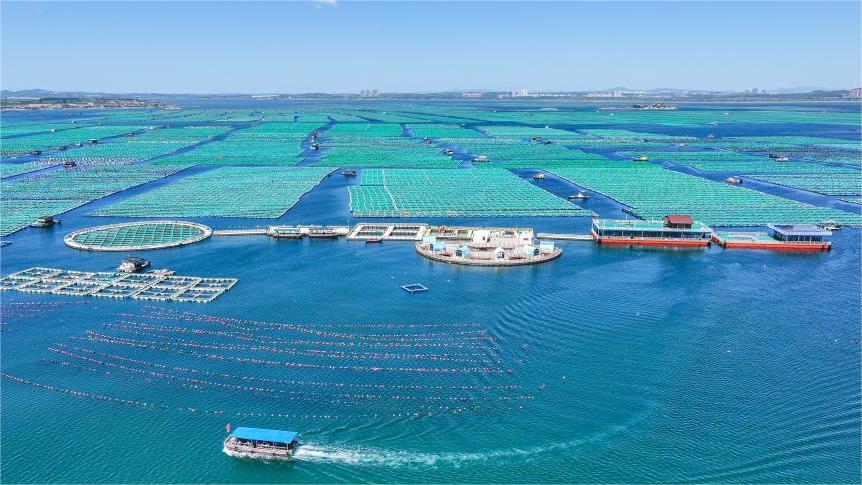Commentary: U.S. should abandon "sour grapes" mentality when China's green products excel
BEIJING, May 19 (Xinhua) -- Looking through the lens of U.S. additional tariffs on China's green products, including electric vehicles (EVs), solar panels, and charges of "overcapacity" within these sectors, the specter of a "sour grapes" mentality looms large.
The U.S. side's call for China to rein in its thriving industries prompts scrutiny. If labeling the export of 12 percent of Chinese-made EVs as overcapacity, what then of Germany, Japan, and the United States, which respectively export 80, 50, and 25 percent of their automobiles?
Contrary to assertions of overcapacity, the reality in the new energy vehicle industry actually reveals under-capacity. Projections from the International Energy Agency (IEA) suggest that by 2030, global demand for new energy vehicles will surpass last year's figures threefold, reaching 45 million vehicles, with power battery demand skyrocketing to 3,500 GWh.
The claim of "overcapacity" appears increasingly unjustified, perhaps serving as a veiled pretext to conceal areas where the U.S. lags behind.
Chinese new energy enterprises have honed their competitive edge through years of innovation and competition. Meanwhile, the United States annually exports substantial quantities of jumbo jets, agricultural products, high-tech goods, and financial services, surpassing domestic demand. Yet, it refrains from labeling itself with the same "overcapacity" tag, recognizing these sectors as areas of competitive advantage crucial for bolstering its trade balance.
Historically, the United States has been a significant exporter of goods and services, accounting for a sizable share of global exports.
The U.S. argument of "overcapacity" thus warrants rejection. It embodies self-interest and reveals sentiments of envy, anxiety, and hegemony, contradicting economic principles and global interests.
Such a "sour grapes" mindset can prove detrimental to the United States. Embracing, rather than rejecting, China's industrial strengths as a mutual benefit would be a more constructive approach, fostering cooperation and prosperity on a broader scale.
China's success in green products stems from its robust capabilities, marked by reliability, affordability, independent innovation, market competition, and rapid technological advancement within a vast market, rather than reliance on subsidies.
Undeniably, global consumers and businesses reap the rewards of China's tech-savvy manufacturing prowess. Chinese companies offer dependable, cost-effective products, enriching the global supply chain and driving investment in various countries, thereby stimulating economic growth, mitigating inflation, and advancing technology and sustainability efforts.
Persisting in a "sour grapes" mentality may lead to dire repercussions. In April, a New York Federal Reserve Bank report highlighted how U.S. export controls have led to widespread decoupling between American suppliers and Chinese counterparts, resulting in substantial financial losses, decreased profitability, and workforce reductions for affected American entities.
It's imperative to dispel the notion of an unassailable dominance in all sectors. The United States should adopt an objective, rational, and cooperative perspective toward China's prowess in certain domains, recognizing that a shared future for humanity relies on innovation and collaboration rather than sanctions and suppression.
Photos
Related Stories
- America's additional levy on Chinese products "bad policy, worse leadership"
- U.S. should stop "using Taiwan to contain China," take concrete actions to preserve bilateral ties, says Chinese embassy
- Experts say US forcing nation to hit back
- China's industry, commerce community urges U.S. to stop tariff hike on Chinese goods
- U.S. "going further down wrong path" with tariff hikes: embassy
Copyright © 2024 People's Daily Online. All Rights Reserved.









